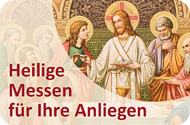Preparatory Prayer: This is the final meditation of my retreat. I do it once more in your presence so that all you have sown in my heart so far will bear fruit. Help me to see that the important part about meeting you and receiving your grace in prayer, is to bring you back into my life with me. I believe in your presence so that I am speaking and listening to you directly through your gospel. I believe in your presence in the Eucharist, and I want to bring that presence with me and to have always an inner life in a climate of faith. To know that I'm your creature, that I have been redeemed by you, that I have been loved by you, and every moment I can do something to please you and bring others to you. I'm asking you for a grace I need to be generous, so what you have been insisting on in this retreat, I will finally incorporate with it and open my mind definitively to it. I want to love you more like you deserve to be loved, not as someone who is useful to me but as someone who has loved me as no one else has. The more I look at you, the more I have contemplated you, the more I have realized my own nothingness and my own smallness, and how I need your grace. So, I have come here imploring that grace and offering you the smallness, what I am, all that I have. I keep holding on to Mary's hand and asking her to guide and help me as I listen to you and as I make my own resolutions.
1. Recap
We began this series of meditations looking at our own lives. We looked at the gift of life that God the Creator gives, a gift that can only come from God. We have let him explain to us how he made us out of earth and gave us his own breath to be his image and to be his likeness. We have looked at the interior division that we feel inside ourselves, and we have seen how that division that was made still more strained through sin, the sin of our first parents. We have seen the great gift that he gave us, making us able to love because he made us able to choose. He made us free to be able to follow him out of love and not just out of instinct like the animals and the rest of creation. Then we saw what we did with that and we saw Christ's reaction. What did God do when we walked away from him? Not only was he like the father who waited for his son to come back, but he took it upon himself to go out and look for us and make it possible for us to come back by dying on the cross. We saw him in his agony of love; we saw how in his constancy in his prayer even as a man he towers above us. He gave us Mary as our mother, he opened his heart to us with the words, "I thirst" - thirst that the fruit of his work would reach all people.
Now we are going to take another step with Christ, looking at how he treats Peter.
2. Peter at the Tomb
Peter is a great character altogether when you read through the Gospels. I don't know how many New Testaments I have gone through over the years, but I remember one where I underlined everything that had to do with Peter all through the Gospel. I realized that whenever Christ speaks to the disciples, Peter is one of those he is speaking to, as well the apostles. And you see that Jesus was really no easy master to follow. Therefore Peter, to stick with Jesus, had to accept a lot of things that were really hard to accept. Peter said, "You are the Christ," and Jesus congratulated him; then a few minutes later, Peter is trying to tell Jesus, "No, you can't die on the cross," and Jesus turns and calls him Satan. "Get away from me, Satan." Jesus was very clear, harsh in a way, with Peter, lifting him up and then letting him touch reality again. But Peter loved Jesus, and you can see that the love that Jesus had for Peter was different from the love he had for St. John. But after his Resurrection especially, you see the understanding Peter had of Jesus and the very delicate and close way that he dealt with him. How he was sensitive to Peter's sensitivity. So let's look at three different scenes and look at the way Christ deals with Peter and see him talking to us as well.
Chapter 20 of St. John starts off like this: "It was very early on the first day of the week and still dark when Mary of Magdala came to the tomb. She saw that the stone had been moved away from the tomb and she came running to St. Peter and the other disciple, the one Jesus loved. 'They have taken the Lord out of the tomb,' she said, 'and we don't know where they have put him.' So Peter set out with the other disciple to go to the tomb. They ran together, but the other disciple, running faster than Peter, reached the tomb first. He bent down and saw the linen cloths lying on the ground but did not go in. Simon Peter, who was following, now came up, went straight into the tomb and saw the linen cloths on the ground and also the cloth that had been over his head. This was not with the linen cloths but rolled up in a place by itself. Then the other disciple who had reached the tomb first also went in. He saw and he believed. Until this moment, they had failed to understand the teaching of Scripture that he must rise from the dead. And the disciples went home again."
With this last phrase here, "Until this moment, they had failed to understand the teaching of Scripture that he must rise from the dead," we have an inkling of what had happened to St. Peter after Jesus had been crucified. From the time that Jesus was taken down from the cross and laid in the tomb, all of that Friday night and all of Saturday and Saturday night, none of them had yet understood what the Scriptures had said. Peter was not expecting Jesus to rise from the dead. Imagine Peter's grief for all of Holy Saturday - I am sure we can understand that he was probably blaming himself all the time. "If I had only stayed awake with Jesus, if I had only not fallen into temptation, if I had only been strong, if I had only defended him, if I had only stopped Judas when he went out so he couldn't bring? I knew there was something fishy, something was happening." All these things were in Peter's mind, but, above all, "I wish I had not betrayed him." He would have much preferred to have died with Christ than to be responsible for Christ's death and now know that Christ was dead and Peter was alive. What was left in life for Peter? And all the more so because Peter loved Jesus: he loved him sincerely and he loved him deeply, so there must have been no end and no bottom to the remorse of Peter on this Saturday that he spent reliving everything over and over in his mind. He was recriminating himself for all that had happened on Thursday night and everything that had happened on Saturday. "Why did I do it? Why did I not stand beside him? Who knows what would have happened if we all would have stood firm with Jesus?"
So Peter was not expecting Jesus to rise from the tomb. And Peter was also deeply ashamed of what he had done. Peter, after he had betrayed Christ, "went out and wept bitterly." And we can imagine the way Peter wept when at a distance he was looking at the cross, and he saw the body taken down and he followed the body to the tomb. So this is Peter, this is the way Peter is thinking, this is the despair that Peter is in, with no hope of the Resurrection. And here he gets the first message from Christ. If Peter wasn't expecting the Resurrection just imagine what it would have been like for him had Jesus suddenly appeared to him. But Jesus understands people, and he knows how to prepare people. So when Peter gets called out to the tomb on Sunday morning and he comes up and he walks inside that tomb and he sees the clothes, something catches his eye. Mary of Magdala had come and said, "They have taken away the corpse. Grave robbers!" But if someone comes in and steals a corpse, they just rip the coverings off and throw them on a bunch on the floor - take the corpse and run, right? But everything was folded in its place. Notice something else: Peter walked in and the Gospel doesn't tell us that Peter believed. What it tells us that John walked in and that John believed, and then the disciples went home again. You can imagine that they talked on their way back. And John asked Peter, "Peter, did you see what I saw? What does it look to you, Peter?" "What do you think, John?" Imagine John, the one who believed, saying to Peter, "I think he has risen, I believe he has risen from the dead. Do you remember what he said?" And this is the first inkling to Peter that Jesus is alive.
3. Peter meets the Risen Lord
So if Peter had a problem before, the problem was all himself and his remorse. Now Peter has another problem. If Jesus is alive, how is he going to face him? How is he going to greet him? How is he ever going to be able to speak to Jesus again? How is Jesus going to treat him? See the different thoughts and problems that are now going through Peter's mind, because Jesus is not dead, he has risen from the dead, and obviously Peter is going to have to meet him again. So Jesus keeps preparing Peter. There is an appearance of the Risen Lord that is not described directly, only when the disciples come running back from Emmaus do we read it in St. Luke's Gospel. As the breathless disciples run in from Emmaus, they are greeted with by the apostles saying, "The Lord has risen and has appeared to Simon." So the second thing Jesus does to Simon is appear to him privately. Peter needed that, because we know from the Gospel that Peter loved Jesus, no doubt about it. Peter wanted to be faithful to Jesus, Peter even wanted to lay down his life for Jesus. Imagine the tears that flowed when Jesus and Peter were alone together. "The Lord has risen and has appeared to Peter." So the next thing Jesus does for Peter is to give him the chance to open his soul, to sob, "I'm sorry for what happened." And we can be sure that Jesus said to Peter the same thing that he said to those disciples on the way to Emmaus: that it was necessary that the Messiah die. "Yes, it would have been better if you hadn't run away. It would have been better if you had prayed and not fallen into temptation, but it was necessary that I should die. So, Peter, don't blame my death on yourself. I didn't die because you ran away. I died because that is what I came to do, because I had to save all people."
So this private encounter of Peter with Christ was the opportunity for Christ to further console Peter. Then, after the appearance to the Emmaus disciples, when they come running back and the people there tell them that the Lord has risen and has appeared to Peter, right there and then Jesus appears amid them all. "They were still talking about this when he himself stood among them and said, 'Peace be with you.' And in a state of alarm and fright, they thought they were seeing a ghost." So the realization that Jesus had risen from the dead still hasn't quite sunk in. They know it, but when they are confronted with Jesus they still think he is a ghost; they are still alarmed and frightened.
4. Peter on the shore again
Let's keep looking at the way Jesus treats Peter. First of all he sends him the warning: "I'm risen." He lets him prepare himself, then he comes to Peter in private and lets Peter unburden himself. Then he appears with Peter when all the rest are there, and now there is this final appearance that you will find in John's chapter 21. "Later on, Jesus showed himself to his disciples again. It was by the Sea of Tiberias and it happened like this. Simon Peter, Thomas, called the Twin, Nathaniel from Cana in Galilee, the sons of Zebedee, and two more of the disciples were together. Simon Peter said, 'I'm going fishing.' And the rest said, 'We will come with you.' And they went out, got into the boat and spent the whole night fishing, and they did not catch anything." This wasn't the first time this had happened. "It was light by now, and there stood Jesus on the shore, though the disciples did not realize it was Jesus. So he called out, 'Have you caught anything, my friends?' And they answered, 'No.'" It was a very dry answer that they gave back, no further explanation. What a time for a stranger to come and ask them had they caught anything. And then the stranger said to them, "'Throw the net out to the starboard side and you'll find something.' So they dropped the net and there were so many fish that they could not haul it in, and the disciple that Jesus loved said to Peter, 'It is the Lord!' At these words 'It is the Lord,' Peter, who had practically nothing on, wrapped his clock around him and jumped into the water. The other disciples came in the boat, towing the net and the fish. They were only about a hundred yards from the land. They came in, and they saw that there was a fire and some bread, and Jesus asked them for some fish. None of them dared to ask, "Who are you?" But then after the meal Jesus said to Simon Peter, 'Simon, son of John, do you love me more than these others do?'"
Do you remember Peter in the Last Supper? Then Peter had said, "Lord, even though everybody else will run away, I won't." Now, Jesus asks Peter a very pointed question. "Peter, do you love me more than these others do?" You can imagine the quiet that descended on the apostles - a little bit of shock at the question because they all knew, or rather they all thought they knew what Jesus meant. Here is Jesus once again taking Peter down a peg, and they were all wondering what Peter was going to answer. Peter says, "Yes, Lord, you know I love you." He doesn't make any comparisons. Jesus says to him, "Feed my lambs." And apparently the meal goes on a little bit, and then a second time Jesus says to Peter, "Simon, son of John, do you love me?" He leaves out the comparison this time and asks him about the truth of his love. I imagine the other apostles' heads snapping up in surprise that Jesus would ask the question again. And Simon answers with the exact same words, "Yes, Lord, you know I love you." Jesus says to him, "Look after my sheep." Then it goes on a little bit and Jesus said to him a third time, "Simon, son of John, do you love me?" Who knows how the other apostles reacted now, it seems that Jesus is really pushing a point and really giving Peter a hard time. And Peter was upset that he asked him a third time, "Do you love me?" And he said, "Lord, you know everything, you know I love you."
Why was Peter upset? Remember that Peter before had been so sure about his love for Christ, sure enough to make comparisons with the others, and Jesus time after time had said to him, "Watch out, you are going to fall." He had said, "you are all going to betray me tonight." And Peter says, "I won't betray you. I will give my life for you." And Jesus said to him, "Peter, will you give your life for me? I tell you, before the cock crows thrice, you are going to betray me three times." And Peter still doesn't believe him. And in the Garden of Gethesemane he comes back and says, "Peter, could you not watch? Watch so you will not fall into temptation." And he goes away and he comes back and says, "Peter, watch and pray so as to not fall into temptation." Three times he comes back. "Watch and pray." And Peter didn't watch, and Peter didn't pray, and Peter fell.
So Jesus asks him a third time, "Simon, son of John, do you love me?" I think Peter was upset, but not in the sense of being upset that Jesus would ask him so insistently. Peter remembered the last times that Jesus had insisted like this it had been a warning, and I think Peter says to himself here on the lakeshore, "Is it possible that I am going to fall again? Is Jesus looking at something that I don't see yet? Is it like the past times, that I am not listening to what he is saying?" So Peter was upset at this third question, thrown into turmoil. So Peter at this stage doesn't really say anything about himself, he doesn't boast about his love, he just throws himself in Jesus' arms and says, "Lord, you know everything, you know I love you." So he is saying, "Lord, look at this sincerity. I love you." But at the same time he recognizes that "I can't sustain that love without him." He shows Jesus here that he has learned the lesson. "You know everything, Lord, you know I love you." And he doesn't make any more promises than that. All he can do is promise Jesus his love. And Jesus said to him, "Feed my sheep." So Jesus raises Peter back up again, he gives Peter confidence and trust, and he makes Peter a promise that must in hindsight have been consoling as well as awesome and fearsome. Jesus says, "I tell you most solemnly, Peter, when you were young, you put on your own belt and you walked wherever you liked." You have seen their clothes, they were loose-hanging: when they wanted to work or walk or make a journey, they pulled them together a belt so as to make it easy to move around. Jesus is saying, "When you were young, you made your own decisions. When you were coming in, when you were going out on a trip, when you were coming back to the house. But when you grow up, you will stretch out your hands and someone else will put a belt around you and take you where you would rather not go." John gives us an explanation, saying that in these words he indicated the kind of death by which Peter would give glory to God. After this he said, "Follow me."
This promise signifying Peter's death for the glory of God was probably heartening and terrifying at the same time for Peter. You remember Jesus' prayer in the Garden of Gethsemane, saying, "I want this cup to pass by me, but not my will but yours be done." So we can say that when Jesus went to his death and saved us from our sins, which was our redemption, he was taken where he would rather not go. Isn't it true? Jesus said to his Father, "Take this cup away from me if it is possible, but not my will but yours." Jesus was freely taken where he did not want to go, and now he makes the same promise to Peter. "Peter, you are going to glorify God in the same way as I glorified him." "With these words, he indicated the kind of death by which Peter would give glory to God, and after this he said, 'Follow me.'" So he said to Peter, "You, follow me." He is saying, "Peter, your love has been purified; you are empty of yourself, not full of yourself. Your only trust is in me. You are not trusting in your own ability, you are throwing yourself into my arms, and for that reason you will be able to walk the path that I walked. And one day you will stretch out your hands, and someone else will put a belt around you and take you where you would rather not go, and in this death you will glorify God."
5. Jesus and Me
In this we see that when Jesus calls us to follow him, he calls us to live in our lives everything that he lived. It is the same way St. Paul describes Jesus, the Second Person of the Blessed Trinity, the Son of God in Heaven, not holding onto his divinity but becoming a slave like us, like us in everything except sin. For us to follow Christ we have to let go of our vanities. Not holding onto the people that we think we are, but giving ourselves to God the way Jesus-become-man gave himself to us.
Jesus walks a path in this world, and we can go through the gospel and it's a never ending prayer and meditation that you can do just to see Jesus as he walks, talks, heals, relates to people, relates to his Father, prays as he cures, prays as he teaches. And that's what he wants us to be, and in each one of those actions of Jesus we have an example of what we should be. We see how we have to be strong, we see the fortitude with which we should face difficulties in life, we see the generosity and simplicity that we should treat others with, we see the need of those who are suffering more than us, those who are suffering from sin. We are not here to stamp out the reed that is smoking, but to fan it back into a flame.
All of these things that Jesus gives us as an example for life is the path that we have to follow. He says, "Blessed are the poor, blessed are the meek, blessed are those who make peace." Our whole life is a following of Christ and when Peter and the disciples wanted to know what they had to do, all they asked themselves was, "What did the Lord Jesus do?" That's why through their reflections and through the inspirations of the Holy Spirit, we actually have the Gospels where we collect those parts of the life of Christ, because he did many other things not written in these books, "but these things are written so as we might imitate them and have life."
Our following of Christ becomes total when we have left ourselves to such a degree that he can ask anything of us and he doesn't have to worry if that is what we would prefer, if that's what comes easiest to us, if that's what is more appetizing from a more human point of view. When the Lord doesn't have to worry about that and can just ask us for those things that he wants us to do, our following of him is total. "No one loves his friends more than the one who gives down his life for his friends." And Jesus asks us to love others in the same way that he has loved us by giving his life for us.
So this is the promise that he made to Peter when he said, "Follow me." He was saying, "Yes, you will follow me now that you have failed," as he said in another place, "I have prayed that once you have recovered your faith, you will strengthen your brothers." Peter is central to the Church, the rock on which Jesus built his Church. The faith of Peter that was built up by Jesus because Peter was humble, is the rock that endures through the Church and still is firm today.
6. Conclusion
I encourage you to take some time here to go over these three scenes and look at the way Jesus treats Peter. Look for any parallel, any light there for your own life, in the way that Jesus has treated you. Look at the way he has come back to you, the way he has reminded you that he is alive, the words he has spoken to you in your soul when you have had to speak to him about your failings. It is all leading up to one question.
Look again at this last passage we just read, and put your name instead of Simon's. And let Jesus ask you, "Do you love me? Do you love me more than these others? Do you feel yourself superior to the others?" Then try to answer with Peter and say, "No, I don't feel myself superior to the others, but yes, Lord, you know that I love you." And then right away Jesus says to Peter, "Feed my lambs." So if we say to Jesus in this prayer, "you know I love you," he is going to say to us, "Feed my lambs, these are the ones that need you."
And let him ask you a second time, "Do you love me?" Say a second time, "Lord, you know I love you," and let Jesus say to you, "Look after my sheep, listen to those who need you, I am in my sheep."
It's important that we let Christ ask us a third time, "Do you love me?" and it's important that we in our own soul allow the turmoil that comes with the question, "Will I fail? Will I love up to the love that Jesus wants me to have for him?" Then answer with Peter, "I don't trust myself, Lord, you know everything, you know I love you." If we can say to Jesus, "Lord, you know everything," and then try to say the words, "You know I love you," I think we'll all discover something insinuating itself, some limitation that we place on God's love. Something that he might be asking us to give up, something that he might be asking us to do. Something that we would prefer that God not ask of us.
So recognize in this prayer that we still don't love him as much as Peter did. But we can say to him, "Lord, you know everything. You know I want to love you." Jesus can say to us, "Feed my sheep." Because anything that we ask Jesus for, or ask the Father in Jesus' name, he will give it. If we say to him, "I want to love you," Jesus is going to give us the ability to love him, the ability to put him before anything else, to leave everything else aside. When we do that is when Jesus will be able to tell us, "Follow me, I will make you able to walk where you would rather not go, and in that way give glory to God."
So have a good conversation with Christ, have a good look into your soul with him, let him ask you the questions and make this petition, "Lord, you know I want to love you, I know that you will give me the love that I need to have, the love that you want me to have for you." I'm sure that these reflections over these last meditations are leading you to some conclusions, some pointers as regards what you are going to bring out of the retreat with you, so let your thoughts also go in that direction as you do this private prayer.
Questionnaire:
To help you to examine your life, in the light of the inspirations God just gave you in these moments you shared with him.
1. When have I, like Peter, denied that I am one of Christ's followers?
2. What can Christ ask of me right now? Can he ask anything he wants?
3. What do I need to do to show him I trust him and put him first?





